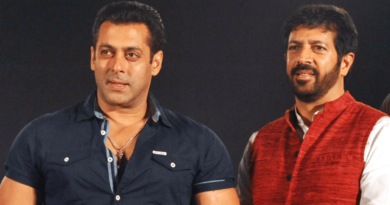Google Doodle celebrates Vikram Sarabhai’s 100th birth anniversary
Google is honouring Dr Vikram Sarabhai’s 100th birthday with a doodle today.Considered the Father of the Indian space program, Vikram Sarabhai was an award-winning physicist, industrialist, and innovator who established Indian Space Research Organisation (ISRO).
Considered the ‘father of India’s space programme’, he was an instrumental figure in the establishment of Indian Space Research Organization (ISRO).
Coming from an industrial family, Vikram Sarabhai had graduated from Gujarat Arts and Science College, before earning his doctorate from Cambridge University.
Google has honoured the 100th birthday of Vikram Ambalal Sarabhai, one of India’s greatest scientists and regarded as the father of India’s space programme, with a doodle today.
The award-winning physicist was born in Gujarat’s Ahmedabad on August 12, 1919. Mumbai-based artist Pavan Rajurkar has illustrated the doodle.
Considered the ‘father of India’s space programme’, he was an instrumental figure in the establishment of Indian Space Research Organization (ISRO). He was selected by former PM Jawaharlal Nehru, to set up the Indian National Committee for Space Research in 1962, which was later renamed ISRO.
Coming from an industrial family, Vikram Sarabhai had graduated from Gujarat Arts and Science College, before earning his doctorate from Cambridge University.
Just 28 years aged then, Vikram Sarabhai returned from Cambridge in 1947, the year India became independent and convinced charitable trusts controlled by his family and friends to invest in a research institution called Physical Research Laboratory in his hometown.
After watching the successful launch of Russia’s Sputnik in October 1957, Dr Vikram Sarabhai managed to persuade the Indian government of the need and importance of such space programmes in the country as well. Thus under his chairmanship, ISRO was launched.
“There are some who question the relevance of space activities in a developing nation. To us, there is no ambiguity of purpose. We must be second to none in the application of advanced technologies to the real problems of man and society,” Dr Sarabhai had said, commenting on the need for a space programme in India.
The noted scientist was honoured with Shanti Swarup Bhatnagar Prize in 1962 and later with one of the country’s highest civilian awards Padma Bhushan in 1966 and the Padma Vibhushan (posthumously) in 1972. Moreover, to honour Dr Sarabhai, a crater on the moon was named after him posthumously in 1973.
Additionally, the lander of India’s second manned moon mission, Chandrayaan-2, has been named ‘Vikram’ after him and is scheduled to touch the lunar surface by September.
Dr Vikram A Sarabhai started a project for the fabrication and launch of an Indian satellite. As a result, the first Indian satellite, Aryabhata, was put in orbit in 1975 from a Russian cosmodrome.
Dr. Sarabhai was very interested in science education and founded a Community Science Centre at Ahmedabad in 1966. Today, the Centre is called the Vikram A Sarabhai Community Science Centre

summary
Dr.Sarabhai was considered as the Father of the Indian space program; He was a great institution builder and established or helped to establish a large number of institutions in diverse fields. He was instrumental in establishing the Physical Research Laboratory (PRL) in Ahmedabad: after returning from Cambridge to an independent India in 1947, he persuaded charitable trusts controlled by his family and friends to endow a research institution near home in Ahmedabad. Thus, Vikram Sarabhai founded the Physical Research Laboratory (PRL) in Ahmedabad on November 11, 1947. He was only 28 at that time. Sarabhai was a creator and cultivator of institutions and PRL was the first step in that direction. Vikram Sarabhai served of PRL from 1966-1971.
He was also Chairman of the Atomic Energy Commission. He along with other Ahmedabad-based industrialists played a major role in the creation of the Indian Institute of Management, Ahmedabad.
Bollywood home,movie




